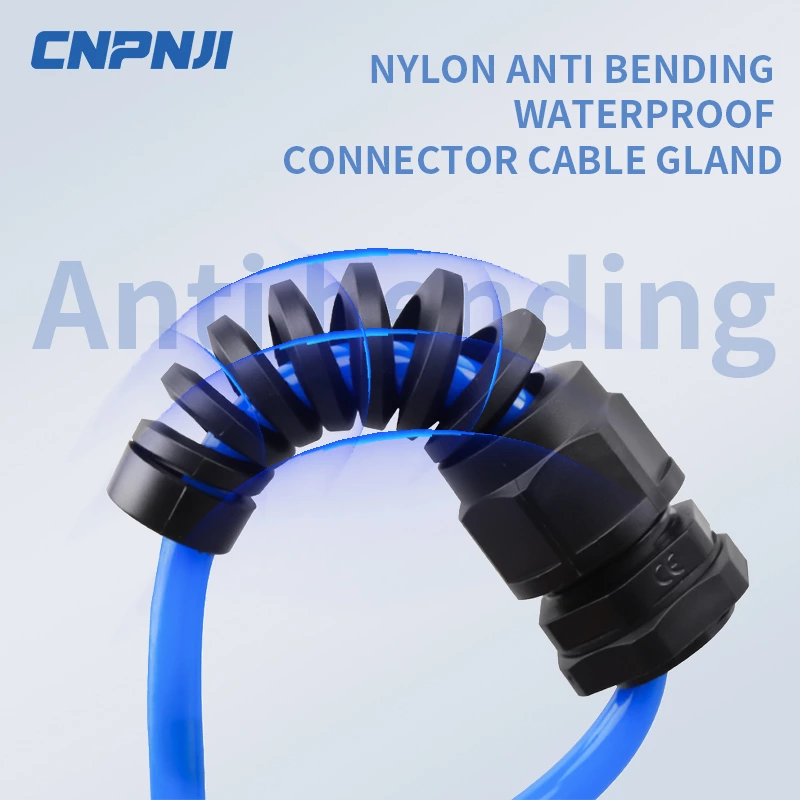Material characteristics of nylon anti-bend connectors
Material characteristics of nylon anti-bend connectors
The material characteristics of nylon anti-bend connectors mainly come from the nylon material used (usually nylon 6 or nylon 66), which gives the connector good mechanical properties, chemical resistance and environmental adaptability. The following are several key characteristics of nylon anti-bend connector materials:
1. High strength and toughness
Impact resistance: Nylon materials have good mechanical strength and toughness, can withstand large mechanical stress and impact, and are not easy to break or deform. This allows nylon anti-bend connectors to maintain a stable structure under repeated bending or stress.
Abrasion resistance: Nylon has good wear resistance, and the connector can reduce wear and extend its service life in an environment where it is in long-term contact and friction with cables and equipment.
2. Temperature resistance
High and low temperature resistance: Nylon materials have a wide temperature resistance range and can usually be used normally at temperatures from -40°C to +100°C. Some reinforced nylon materials can even withstand higher temperatures. Therefore, nylon anti-bend connectors are suitable for high or low temperature environments.
3. Excellent anti-aging performance
Anti-ultraviolet aging: Nylon material has strong resistance to ultraviolet rays. Even if it is used for a long time under direct sunlight, it is not easy to age or have obvious physical performance degradation.
Long-term use stability: In outdoor or industrial environments, nylon materials can maintain a long service life and are not easy to become brittle or degrade.
4. Chemical corrosion resistance
Oil resistance, acid and alkali resistance: Nylon has good resistance to chemicals such as oil, alkali, and acid. Therefore, in environments with oil, corrosive liquids, etc., nylon anti-bending joints can well resist the erosion of these substances on the material.
Solvent resistance: Nylon also has good tolerance to most common solvents and is suitable for use in complex industrial chemical environments.
5. Electrical insulation
Good insulation performance: Nylon material itself is an excellent electrical insulator. Using it in cable connections or electrical equipment can effectively prevent current leakage and short circuit problems, ensuring the safe operation of electrical equipment.
6. Lightweight
Lightweight: Nylon material is relatively light. Compared with metal joints, nylon anti-bending joints are lighter, which is convenient for equipment assembly and maintenance, and also reduces the total weight of the equipment.
7. Easy processing and molding
Good molding: Nylon has good injection molding performance, and anti-bending joints of various shapes and specifications can be manufactured through complex molds to meet the needs of different equipment and cables.
Smooth surface: The smooth surface of nylon material and the smooth inner wall of the joint can reduce cable friction and reduce wear on the cable.
8. Environmental protection
Recyclability: Nylon material has certain environmental protection and can be regenerated and recycled, which is in line with the trend of modern industry's environmental protection requirements.
In summary, the reason why nylon anti-bending joints are widely used is due to its high strength, wear resistance, temperature resistance, corrosion resistance and good electrical insulation. It can provide reliable protection for cables and equipment in a variety of harsh environments.

